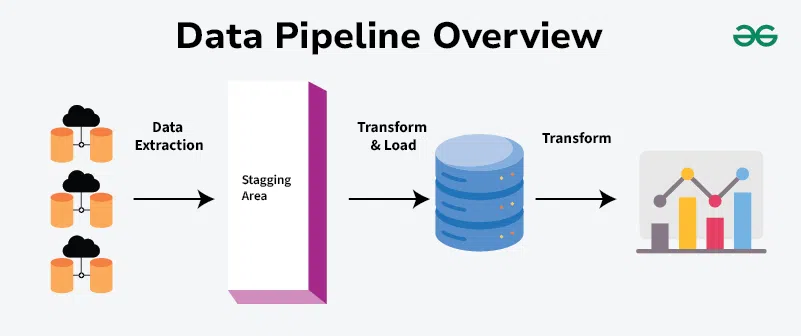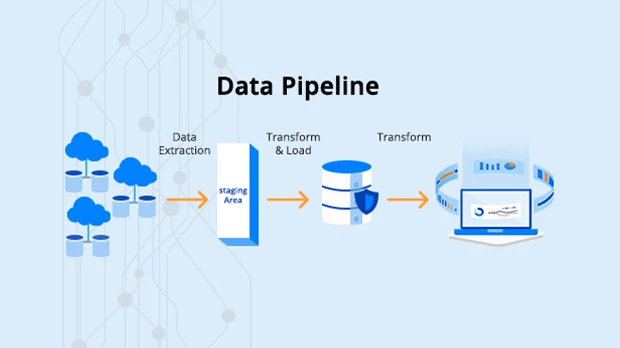

Learn how to build and manage data pipelines
Data Engineering is the backbone of modern data-driven decision-making. It involves designing and building robust systems that transform raw, unstructured data into clean, organized datasets ready for analysis and advanced applications like business intelligence and machine learning. Without data engineering, businesses struggle to harness the true potential of their data.

In today’s digital era, data isn’t just information—it’s an asset. Data Engineering ensures that this asset is accessible, reliable, and actionable. Companies leverage data engineering to achieve:
Data collection is the first step, where information is gathered from various sources like APIs, logs, and real-time streams. Tools like Apache Kafka for streaming, Scrapy for web scraping, or APIs help capture raw data for processing.
The collected data needs a safe, scalable place to live. Depending on the data type and usage, engineers choose:

Once stored, data must be cleaned and prepared for use. This involves removing duplicates, filling in missing values, and transforming formats. Tools like Apache Spark for distributed processing and Python libraries like Pandas play crucial roles here.
Data pipelines automate workflows, ensuring data consistency and accuracy. Using orchestration tools like Apache Airflow or Luigi, engineers can schedule and monitor tasks, creating a seamless data flow across systems.

Building a career in data engineering requires a combination of technical skills and hands-on practice. Here’s how you can start:

A wealth of online resources is available to guide you through your learning journey:
By investing in the right skills and continuously practicing, you can become a sought-after data engineer, powering the future of data-driven innovations.
Learn how to collect, clean, and transform raw data into an analysis-ready format using Python and Pandas.
Explore techniques to write efficient SQL queries for processing large datasets in relational databases.
Understand how NumPy is used for fast and efficient numerical computations in data processing pipelines.
Dive into using IPython for exploratory data analysis and building reusable code snippets.
Build an end-to-end Extract, Transform, Load (ETL) pipeline to automate data movement across systems.